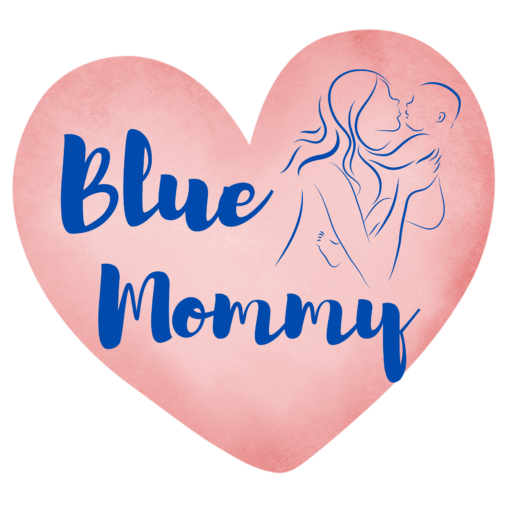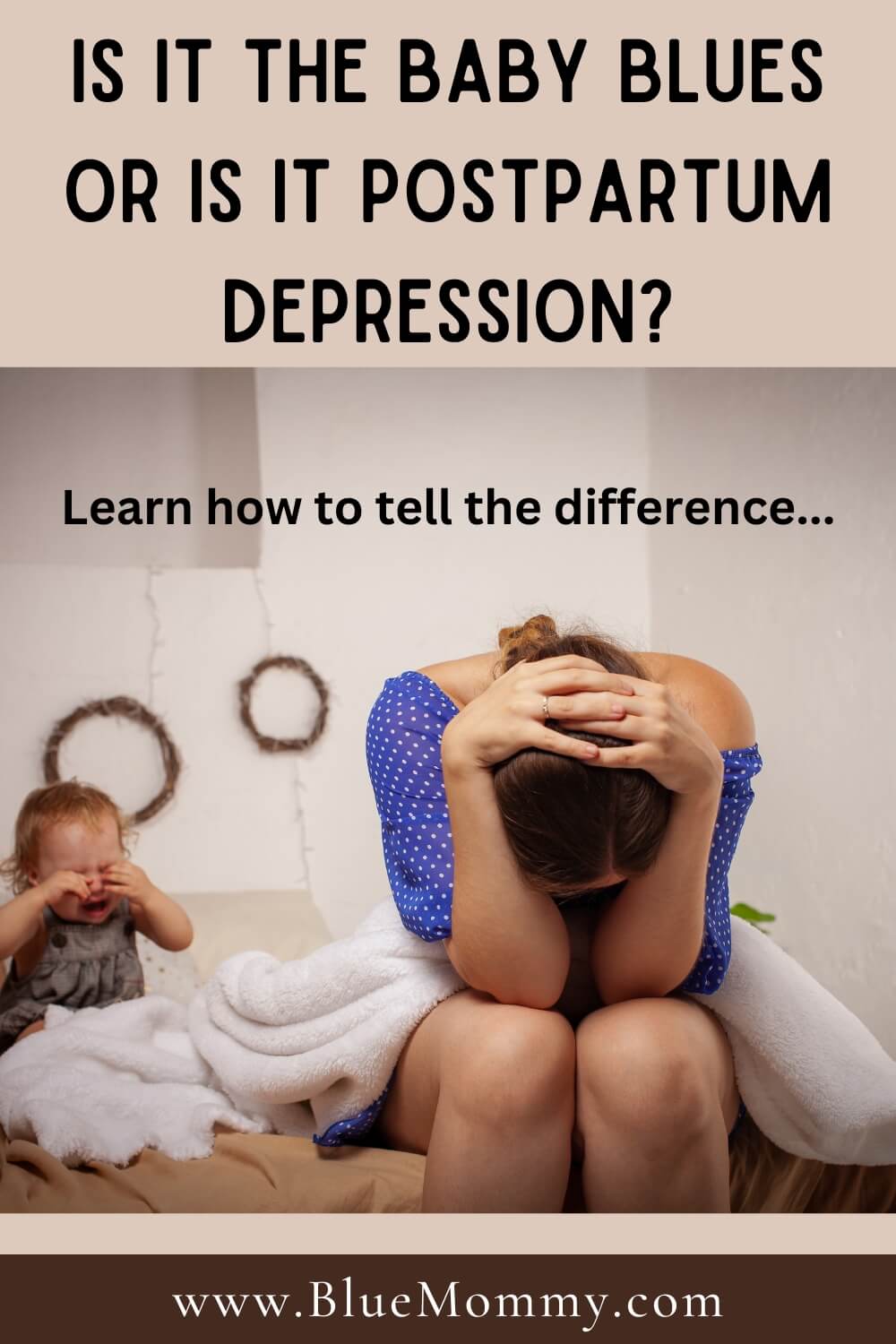Is It the Baby Blues or Postpartum Depression?
“2023 – the year I became a mom.
The best and hardest year of my life. This year tested me in ways I never imagined. It taught me patience and to be kind to myself. It showed me how strong I could be. It taught me what my priorities were and who and what to put my energy into.
You don’t understand how hard postpartum and motherhood is until you’ve gone through it. I knew it would be hard, but I didn’t think it would be this hard.
I made it out of the newborn stage and thought I escaped postpartum depression. But slowly people stop checking on you, the visitors stop, you find yourself doing the same thing day in and day out.
I felt so alone. I felt like I lost who I used to be. Postpartum anxiety consumed my life. I was overstimulated all the time. I cried every day for over 2 months to the point where it turned into PPD (postpartum depression). I lost interest in anything I used to enjoy. I felt so guilty all the time for feeling the way I did when I had a perfect and healthy baby.
I would always respond to “how are you doing?” with “I’m fine”. “We are good” because I thought that’s what people wanted to hear. I would put on a smile in public and crumble behind closed doors. I couldn’t admit how much I was struggling. I wanted to be a mom so bad- so why would anyone feel bad for me that I wasn’t ok.
The day I admitted I needed help was the lowest part in my motherhood journey. I felt like I had failed my daughter. Failed my husband. Failed myself. I now realize it took a lot of courage to admit out loud how I was feeling and there is absolutely nothing wrong with admitting you need help.
Postpartum is a wild ride. It truly does take a village- and I am beyond thankful for mine.
Everyday is still hard and exhausting but I absolutely love being a mom. It’s the greatest job in the world.
I’m sorry to the moms before me that I didn’t know how to support and be there for. I promise to be there for the future moms and tell them it’s ok to not be ok. It’s ok to admit you need help. It’s ok to not feel like yourself. Here’s to 2024 and learning to be more kind and gentle with ourselves. To working on our mental health. To giving those moms in our lives a little extra love.”
I wanted to start out today’s post with a very sincere and heartwarming Facebook post that one of my friends shared at the start of this New Year. I asked her permission to share this with you today, and she graciously accepted as she is hoping that her experience will help out others as well. I believe it will.
Wow! It took her so much courage to write this post. I thank her and admire her so much for sharing her story.
What is important to take away from this post is that it’s normal and common for moms to experience the “baby blues” – crying, sadness, difficulty sleeping, irritability – within the first few days after having a new baby. After all, it is a time of rapid hormone fluctuations, poor sleep, and huge changes in your life. However, when these symptoms last longer than two weeks, you may actually be suffering from “postpartum depression(PPD).”
Postpartum depression requires professional consultation and treatment, and is not something that you should blame yourself for developing. It can affect any mother, but here are some of the other risk factors for its development.
- History of depression prior to pregnancy or during pregnancy
- Family history of depression (often a biochemical predisposition)
- Previous history of postpartum depression after the birth of other children
- History of an eating disorder
- Lack of support from family, friends, and partner
- Age of the mother – Younger mothers are at increased risk
- The more children you have, the greater the risk of PPD
- Troubled relationship with your partner
In any case, if you are experiencing depression after the birth of your baby, please do NOT delay in getting treatment. You are not weak for seeking treatment. You are doing the absolute best thing you can for both yourself and your baby’s well-being.
There have been too many stories in the news about new moms who never got help and either harm themselves or harm their babies/children, especially if the postpartum depression progresses into postpartum psychosis, where they lose touch with reality and develop hallucinations and paranoia. This very thing happened to a young mom in my city almost eleven years ago. It was a very sad story. She was a well-educated woman with two young children. I actually remember seeing her at my workplace when she was pregnant expecting her second child. To make a long, sad story short, she and her two children lost their lives.
The unfortunate part of this was that I remember being at the local pool with my children for their swimming lessons that day, and I overheard two moms speaking about it. One mom was very sympathetic; the other one was very mean and blaming the mother for what happened. This made me realize how far behind society is (including other women!) when it comes to giving new moms the support they require! Instead of criticizing, we should be checking in on moms (doesn’t only have to be a new mom as a mom with older children can also develop postpartum depression), giving them time to rest, and ensuring they are eating, and getting the help they need.
Unfortunately, too many moms are afraid to ask for or seek help, as they don’t want to be seen as weak. However, it is imperative that you seek help as soon as possible.
Another important thing to know, as was my case, is that postpartum depression can be delayed. It may not start soon after your baby’s birth. I have seen reports of it occurring as late as 18 months after the birth of the baby, but I don’t know how much that has been studied. In my case, I noticed it coming on around 4-5 months after the birth of my second child, but it may have occurred due to other stressful situations occurring in my life at that time too. I have to wonder if it would have developed at all, had I not been under extra stresses and so sleep deprived (I also had a two-year-old as my children were born 25 months apart).
How many women are affected by postpartum depression?
Although many cases still go unreported, it appears that about 20% of moms develop it. That is actually quite high. When it comes to postpartum psychosis, that number is lower at around one out of a thousand moms, which would be less than 1% (0.1 % to be exact). Those numbers don’t really matter though. When you’re one of the moms, life with a new or another baby is not fun.
Why, at a time that most would celebrate the birth of a baby, do you feel depressed?
There can be many reasons, but here are some potential ones:
Hormonal Changes:
Estrogen and progesterone hormones increase ten times during pregnancy, and then drop suddenly after birth. In fact, they are back to pre-pregnancy levels or even lower within three days of giving birth! Cortisol is another hormone that increases in pregnancy, and decreases dramatically after the baby’s birth.
Major Lifestyle Changes:
If it is a first baby, it can be very stressful learning everything there is to know about caring for a newborn such as how to bathe the baby, feed the baby (especially if you were like me and had such a hard time with breastfeeding), and so much more! Add lack of sleep and/or a colicky baby into the picture, and your coping skills can dramatically be reduced.
If it is a first baby, then suddenly you may find that you hardly have time to take a shower anymore, eat a hot meal, or just sit down and talk to your partner! If this is not your first baby, there can sometimes be guilt associated with not spending enough time with your older children as caring for the new baby may be taking away time away from them.
Physical Changes:
It can be frustrating to hear about celebrities who are in their pre-pregnancy jeans within a week of giving birth! This is not the norm. I can assure it is not! In addition to weight gain, new mothers deal with the reality of permanent stretch marks, and the pain from vaginal deliveries or caesarean sections.
Emotional Causes:
Many times, mothers-to-be have idealistic thoughts of how the pregnancy, labor and delivery, and post-pregnancy weeks are going to be, only to find out that many things do not go according to plan. For example, if a mother was planning on cuddling and bonding with her baby immediately after the birth, but the baby has to be rushed off due to unexpected medical reasons, this can be devastating. I can also tell you that both of my birth experiences were nothing that I would have imagined. With my first baby, I had to be induced, which led to a very painful labor and waiting for four hours before I could get the epidural. With my second baby, I almost didn’t make it to the hospital in time. I labored in the triage area and then I hemorrhaged when delivering the placenta, resulting in being rushed to the OR for a D & C. I wasn’t reunited with my baby until I woke up after the D & C, almost two hours later, I believe.
In summary, up to 20% of moms will develop postpartum depression. There are several reasons why you may feel depressed after the birth, and risk factors that increase the chances of developing PPD. Arming yourself with this knowledge, can help you identify if you may be suffering from PPD, so that you can get help as soon as possible.

